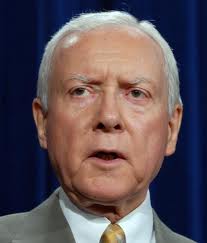New legislation proposed by Sen. Dick Durbin, D-Ill., earlier this month would crack down on the testing, labeling, and sale of dietary supplements nationwide.
 |
The increased regulation almost certainly will deny many Americans easy, affordable access to the natural health products they rely on daily, experts warn.
“This unnecessary power grab would benefit FDA regulators and pharmaceutical companies by taking their competitors off the market, and it would harm the American public,” says Michelle Minton, director of the Insurance Studies Project at the Competitive Enterprise Institute, a Washington D.C. watchdog group.
Sens. Durbin and Richard Blumenthal, D-Conn., quietly submitted the Dietary Supplement Labeling Act of 2011 over the July 4th weekend.
Despite its innocuous title, the bill would force a massive reclassification of food additives and dietary supplements to be managed by the Food and Drug Administration.
Durbin’s bill was made public on the same day the FDA issued proposed new guidelines that would alter the way the agency approves and polices vitamins and dietary supplements.
“Regulatory hurdles such as these are a means by which government bureaucrats get in the way of individuals’ ability to make their own decisions about their healthcare,” warns Minton.
The combination of the two anti-supplement initiatives would force natural health manufacturers to submit to expensive government testing, adopt new labeling, and compete for market share with well-funded pharmaceutical makers who already have long-standing and mutually lucrative relationships with the FDA, health industry insiders say.
Popular supplements now being sold without government interference would be removed from shelves, in some cases for years, pending FDA tests and approval. The cost of all dietary supplements would likely spike as a result of the additional regulatory burden.
Under existing law, the FDA already has enough authority to ensure supplement safety, said Sen. Hatch. “In fact, several former FDA commissioners have said that the agency already has the appropriate and sufficient level of oversight of this industry," he said. "I don't know why we should add more regulation when what we have on the books is working."
Sen. Durbin claims his bill is aimed specifically at the gray area of food and drink products that pose risks or make questionable claims based on dietary supplement ingredients. The issue gained traction in the wake of a number of hospitalizations of children who ate pastries laced with the sleep-aid supplement melatonin. The foods are marketed under the names Lazy Cakes, Kush Cakes, and Lulla Pies.
“Walk down the aisle of your local convenience store and you will see products targeting young people with names like Lazy Cakes, Drank , and Monster Energy Drink,” Durbin said. “These products market themselves as dietary supplements that are safe ways to relax or get a boost of energy, when in reality they are foods and beverages taking advantage of the more relaxed safety standards for dietary supplements.”
The Durbin bill is now before the Senate committee on Health, Education, Labor and Pensions. The HELP committee is chaired by Sen.
Tom Harkin, D-Iowa, a well-known advocate for natural health supplements. Insiders hope Harkin’s influence along with other HELP members known to support the supplements industry, including another outspoken advocate Orrin Hatch, R-Utah, will result in the death of the proposal.
Unwilling to take chances, however, advocates of natural healthcare are already lining up to oppose the Durbin measure.
"The supplement industry has an excellent safety record, and burdensome, duplicative new regulations are not needed,” says John Gay, Executive Director and CEO of the Natural Products Association, a trade industry group.
Adds Minton: “The decision about which supplements are right for whom ought to be left to consumers and their healthcare providers.
“The Durbin and FDA proposals do nothing to improve the safety of the supplement marketplace and likely will eliminate many of the available products.
“The increased cost and decreased variety will mean that many consumers, especially low-income ones, will be forced to stop taking the vitamins and nutrients that can benefit their long-term well-being.”
No comments:
Post a Comment